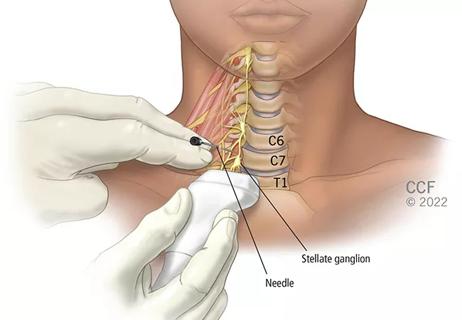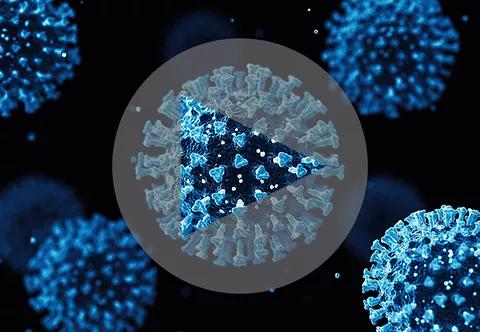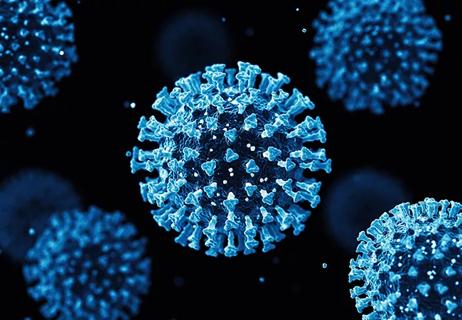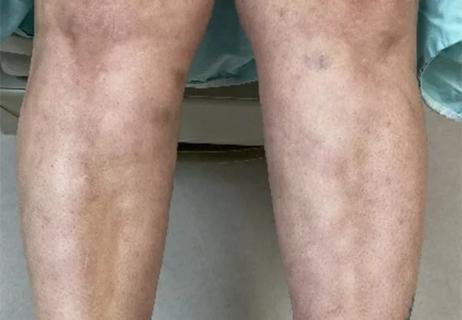Two new expert statements advise on return to play, imaging assessment

“Moving target” may be an understatement when describing the evolution of guidance on cardiac testing and return-to-play considerations for athletes following COVID-19 infection.
Advertisement
Cleveland Clinic is a non-profit academic medical center. Advertising on our site helps support our mission. We do not endorse non-Cleveland Clinic products or services. Policy
Less than six months after the American College of Cardiology’s (ACC) Sports and Exercise Cardiology Section put out early consensus recommendations on the topic in May 2020 (recapped here), a group of leading U.S. sports cardiologists has issued a special communication that they call a “narrative reassessment” of the earlier recommendations. The new report — titled “Coronavirus Disease 2019 and the Athletic Heart” and written by a number of the same experts who authored the ACC report — was published online in JAMA Cardiology. What’s more, it was followed in short order by an expert consensus statement in JACC: Cardiovascular Imaging on a related topic — multimodality imaging for screening of potential cardiac involvement in competitive athletes recovering from COVID-19.
Michael Emery, MD, is a co-author of both new guidance documents. “It remains unclear whether myocarditis and other forms of cardiac injury occur in asymptomatic or mild cases of COVID-19,” says Dr. Emery. “But because myocarditis is an important cause of sudden cardiac death during exercise, the stakes are high for proper management of COVID-19-associated cardiac risk in athletes. Emerging observational data prompted these two new expert reports in order to present a more current picture of our understanding of optimal management, although many questions remain.”
The new JAMA Cardiology report advises consideration of comprehensive cardiovascular testing before resumption of practice or play for the following groups of athletes:
Advertisement
First-line testing as recommended by the JAMA Cardiology authors involves clinical evaluation, ECG, high-sensitivity cardiac troponin (or available cardiac troponin) and echocardiography. In the event of abnormal findings on those tests (or in cases of persistent/recurring symptoms or cardiogenic syncope), cardiac MRI, exercise testing and extended ambulatory rhythm monitoring may be indicated. Persistent troponin elevation also calls for cardiac MRI in this setting.
The authors acknowledge uncertainty around the best timing and indications for various levels of testing in this setting, particularly for cardiac MRI. They note that clearer answers for risk stratification are likely to come from ongoing multicenter registry projects that are now documenting cardiovascular outcomes among competitive athletes after COVID-19 recovery. In the meantime, their report, which includes three detailed return-to-play algorithms — for athletes in competitive high school sports, recreational masters-level athletes and adult athletes in competitive sports — is available for guidance here.
The consensus statement on imaging considerations is a comprehensive review of the strengths and limitations of various imaging modalities in the context of return-to-play considerations in athletes following COVID-19. Dr. Emery and a multicenter team of co-authors review echocardiography of the left and right ventricles, assessment of the pericardium, and the respective roles of cardiac MRI, coronary CT angiography, stress echocardiography and nuclear/PET imaging, among other topics.
Advertisement
“An important message of this consensus statement is that care must be taken not to misinterpret exercise-induced cardiac remodeling as cardiac injury related to COVID-19,” Dr. Emery observes.
Like the JAMA Cardiology report, this consensus statement looks to ongoing registry efforts in athletes recovering from COVID-19 to help better inform future imaging-based screening strategies. The full statement is available here.
“Long-term lingering symptoms after COVID-19 are only beginning to be understood,” observes Leslie Cho, MD, Co-Section Head, Preventive Cardiology and Rehabilitation, Cleveland Clinic. “Clinicians should emphasize to athletes the importance of consulting with their physician before resuming activity.”
Advertisement
Advertisement

Patients report improved sense of smell and taste

Clinicians who are accustomed to uncertainty can do well by patients

Unique skin changes can occur after infection or vaccine

Cleveland Clinic analysis suggests that obtaining care for the virus might reveal a previously undiagnosed condition

As the pandemic evolves, rheumatologists must continue to be mindful of most vulnerable patients

Early results suggest positive outcomes from COVID-19 PrEP treatment

Could the virus have caused the condition or triggered previously undiagnosed disease?

Five categories of cutaneous abnormalities are associated with COVID-19